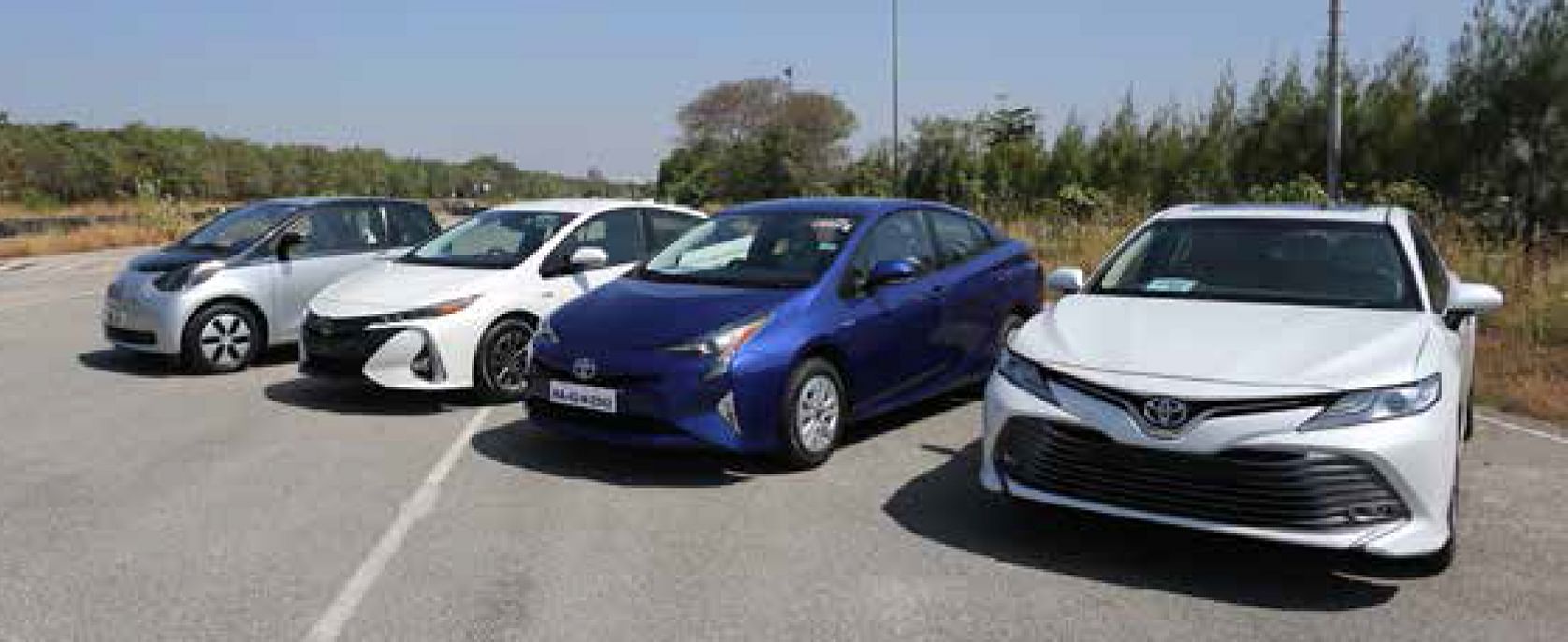Toyota Kirloskar Motor's Shekar Viswanathan bats for scrappage policy, EVs
A strong advocate of eco-friendly mobility, Toyota Kirloskar Motor's Vice-Chairman urges immediate rollout of the much-awaited vehicle scrappage policy to revive growth.
Think Toyota and the image of the company's green leaf flashes into mind. The Japanse carmaker regards the protection of the global environment as one of its top priority concerns. At every stage of a vehicle's life, Toyota strives to protect the environment through reducing energy use and minimising waste. This is amply witnessed at all operations of its Indian arm, Toyota Kirloskar Motor along with the 310,000 units per annum manufacturing facility in Bidadi, Karnataka.

Given this background, it was not surprising that Shekar Viswanathan, Vice-Chairman, Toyota Kirloskar Motor, and one of four panellists at Autocar Professional's webinar held on Earth Day 2020, on the theme of 'Driving towards a Greener, More Sustainable Auto Industry', called for an immediate rollout of the much-awaited vehicle scrappage policy by the government of India to get older, polluting vehicles quickly off the road.
“A scrappage policy is the urgent need of the hour. It will have beneficial effects on the environment by removing older cars, scooters and commercial vehicles that are still running on prehistoric emission norms in a short time. A short timeframe means a minimum period of three to five years; during this time, we should have as many BS VI vehicles on the roads as possible," he said.
Viswanathan, who is a strong advocate of hybrid vehicles and technology, also batted strongly for electric vehicles (EVs). He said the case for EVs in India couldn’t been stronger than at present. The world over, the automotive industry is working aggressively to develop cleaner mobility solutions including a much sharper focus on EVs and hybrids than before. He, however, cited his concern that the domestic auto industry, which has the responsibility of generating employment and enough revenue for the government, might suffer with growth of EVs due to the significant hit the automotive ecosystem will take, given the relatively lesser number of parts compared to an internal combustion engine (ICE) vehicle.
“An ICE vehicle comprises over 30,000 parts. If we need more employment, then we ought to have more vehicles using cleaner BS VI fuel. While more electric vehicles will mean a faster shift to cleaner mobility, it will also mean lesser jobs,” he pointed out.
“The other disconcerting factor with respect to EVs is that these vehicles in India are presently taxed at 5 percent, which while is a good move from an environment perspective, needs to be reviewed by the government for its impact on public finances,” Viswanathan added.
“The revenue generated by ICE vehicles should ideally be replaced by EVs even if it takes the next decade. As we see more and more EVs replace ICE vehicles, we would see the revenue shrinking and as a result, going forward, the government will be tempted to keep hiking the taxes on EVs," he explained.
The route to EV self-sufficiency,according to Viswanathan, will lie in establishing EV battery manufacturing plants in India and that the demand pattern will drive the localisation and need for indigenisation.
Answering a webinar attendee's query on range extender vehicles, Viswanathan responded by saying, "The definition of range extender vehicles is built around hybrid vehicles and they're called range extenders only because one has the option of using both electric drive and ICE powertrains."

With an aim to achieve a zero carbon vehicle lifecycle, Toyota is aggressively driving hybrid and EV technologies with a range of ready-to-use EVs.
"Future products coming from Toyota will include hybrid and electric vehicles because as we make the gradual disconnect from ICE, the hybrid will be a good technology to hop on to, before eventually stepping to EVs. At the end of the day, the customer will dictate what technology to make, based on the cost and degree of convenience. So, whatever products we design, we need to assess them on the equation of whether they solve their (customers') affordable mobility needs while minimising carbon emissions," he concluded.
READ MORE
Scrappage policy vital to charge India's eco-friendly mission: Experts at Earth Day webinar
Maruti Suzuki's CV Raman: ‘Change in buying patterns likely once the lockdown ends.'
Hero Electric's Naveen Munjal: 'Lockdown may open up opportunities for EVs.'
RELATED ARTICLES
Cosmo First diversifies into paint protection film and ceramic coatings
The Aurangabad, Maharashtra-based packaging materials supplier is leveraging its competencies in plastic films and speci...
JSW MG Motor India confident of selling 1,000 M9 electric MPVs in first year
The 5.2-metre-long, seven-seater luxury electric MPV, which will be locally assembled at the Halol plant in Gujarat, wil...
Modern Automotives targets 25% CAGR in forged components by FY2031, diversifies into e-3Ws
The Tier-1 component supplier of forged components such as connecting rods, crankshafts, tie-rods, and fork bridges to l...






 23 Apr 2020
23 Apr 2020
 23711 Views
23711 Views








 Autocar Professional Bureau
Autocar Professional Bureau




